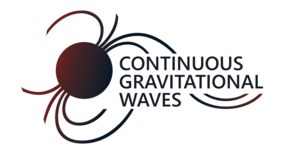January 12-18, 2020

Overview
Gravitational wave data are now finding diverse applications ranging from multi-messenger astronomy to fundamental tests of strong gravity. The goal of the meeting is to bring together experts in all aspects of gravitational wave data analysis with scientists interested in using gravitational wave data to understand neutron stars and black holes.
Venue
Schloss Ringberg is a castle in the Bavarian Alps owned by the Max Planck Society. It is located near Tegernsee lake, south of Munich near the Austrian border. In January it should offer ample opportunities for winter activities.
Organizers
Collin Capano, Badri Krishnan, Gabriele Richardson
Participants
- Jahed Abedi, AEI Hannover
- Chaitanya Afle, Syracuse University
- Bruce Allen, AEI Hannover
- Nils Andersson, University of Southampton
- Soham Bhattacharya, AEI Hannover
- Ofek Birnholtz, Bar-Ilan University
- Duncan Brown, Syracuse University
- Stephanie Brown, AEI Hannover
- J. Michael Burgess, MPE Garching
- Miriam Cabero, University of British Columbia
- Collin Capano, AEI Hannover
- Thomas Dent, IGFAE, Universidad de Santiago de Compostela
- Vladimir Dergachev, AEI Hannover
- Rahul Dhurkunde, AEI Hannover
- Roland Diehl, MPE Garching
- Henning Fehrmann, AEI Hannover
- Daniel Finstad, Syracuse University
- Francesco Jimenez Forteza, AEI Hannover
- Jochen Greiner, MPE Garching
- Charles Horowitz, Indiana University
- Wolfgang Kastaun, AEI Hannover
- Shilpa Kastha, AEI Hannover
- Kenta Kiuchi, AEI Potsdam
- Badri Krishnan, AEI Hannover
- Sumit Kumar, AEI Hannover
- Luis Lehner, Perimeter Institute of Theoretical Physics
- Amber Lenon, Syracuse University
- Ilya Mandel, Monash University
- Ben Margalit, UC Berkeley
- Pierre Mourier, AEI Hannover
- Tejaswi Nerella, Institute for Advanced Study
- Alex Nielsen, University of Stavanger
- Alexander Nitz, AEI Hannover
- Frank Ohme, AEI Hannover
- Veronica Villa Ortega, IGFAE, Universidad de Santiago de Compostela
- Maria Alessandra Papa, AEI Hannover
- Daniel Pook-Kolb, AEI Hannover
- Frans Pretorius, Princeton University
- Sanjay Reddy, University of Washington
- Marlin Schäfer, AEI Hannover
- Yoshinta Setyawati, AEI Hannover
- Christian Setzer, Oskar Klein Center
- Yotam Sherf, Ben Gurion University of the Negev
- Masaru Shibata, AEI Potsdam
- Andrey Shoom, AEI Hannover
- Ingo Tews, Los Alamos National Laboratory
- Krishnendu Naderi Varium, AEI Hannover
- Yifan Wang, AEI Hannover
- Julian Westerweck, AEI Hannover
- Barak Zackay, Institute of Advanced Study
- Matias Zaldarriaga, Institute for Advanced Study
- Enping Zhou, AEI Potsdam
Program
Each day from Jan 13-17 will be devoted to an important theme of gravitational-wave astronomy. There will be 2-3 talks every morning devoted to the day’s theme. Afternoons will be open for discussions and small-group work.
Sunday, January 12
- 16:00: Reception
- 18:00: Dinner
Monday, January 13
Theme: Gravitational Wave Searches
- 8:00 – 9:00: Breakfast
- 9:00: Opening remarks
- 9:15: Thomas Dent [IGFAE, Universidad de Santiago de Compostela] Gravitational wave detection in noisy data: concepts and questions
- 10:30: Coffee Break
- 11:00: Tejaswi Nerella / Barak Zackay [Institute for Advanced Study] New Developments in GW Searches
- 12:30: Lunch
- 15:30: Coffee Break
- 18:30: Dinner
Tuesday, January 14
Theme: Astrophysical Populations and progenitors of gravitational-wave events
- 8:00 – 9:00: Breakfast
- 9:00: Ilya Mandel [Monash University] Our current astrophysical understanding of the progenitors of binary mergers seen by LIGO
- 10:00: Kenta Kiuchi, Systematic error for the neutron star tidal deformability estimation in GW170817/AT2017gfo; Masaru Shibata [AEI Potsdam] On exploring post merger of neutron-star binaries in physical computation
- 11:00: Coffee Break
- 12:30: Lunch
- 15:30: Coffee Break
- 18:30: Dinner
Wednesday, January 15
Theme: Multimessenger astronomy
- 8:00 – 9:00: Breakfast
- 9:00: Ben Margalit [UC Berkeley]
- 10:00: Christian Setzer [Oskar Klein Center] Multi-messenger Synergies: The LSST and GW Observatories in the 2020s
- 11:00: Coffee Break
- 11:25: Roland Diehl [MPE Garching] GW Signals and gamma-ray observations
- J. Michael Burgess, Short gamma ray bursts: cutting through the noise [MPE Garching]
- 12:30: Lunch
- 15:30: Coffee Break
- 18:30: Dinner
Thursday, January 16
Theme: Constraining neutron star equation of state and nuclear physics
- 8:00 – 9:00: Breakfast
- 9:00: Charles Horowitz [Indiana University] Equation of state of dense neutron rich matter
- 10:00: Sanjay Reddy [University of Washington] / Ingo Tews [Los Alamos National Laboratory]
- 11:00: Coffee Break
- 11:30: Nils Andersson [University of Southampton] Exploring matter at the extremes
- 12:30: Lunch
- 15:30: Coffee Break
- 18:30: Dinner
Friday, January 17
Theme: Gravitational Waveform modeling and tests of general relativity
- 8:00 – 9:00: Breakfast
- 9:00: Frank Ohme [AEI Hannover] Gravitational Waveform Models for Current and Future Observations
- 10:00: Frans Pretorius [Princeton University] Simulating Black Hole Spacetimes in Modified Gravity Theories
- 11:00: Coffee Break
- 11:30: Luis Lehner [Perimeter Institute of Theoretical Physics] Readying for surprises and challenges for exploring gravity in and beyond GR
- 12:30: Lunch
- 15:30: Coffee Break
- 18:30: Dinner
Saturday, January 18
- 8:00 – 9:00: Breakfast
- Departure after breakfast




